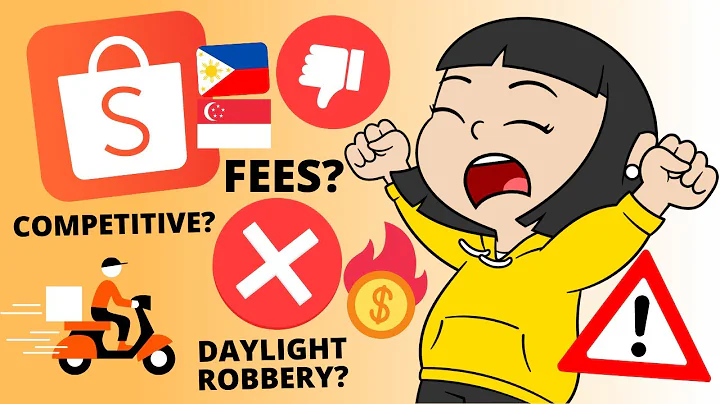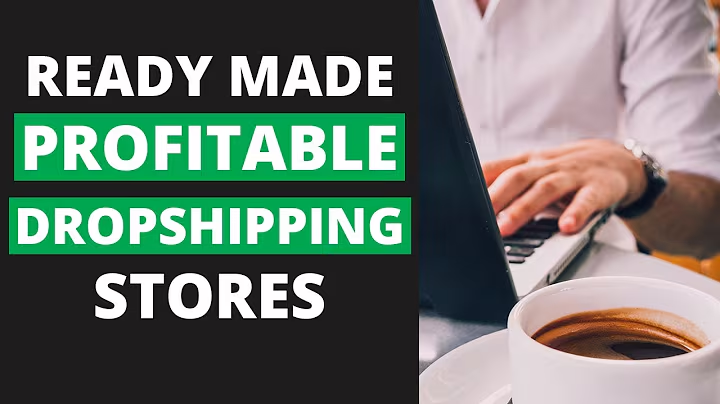The Legal Side of Drop Shipping: Key Pitfalls and Benefits
Table of Contents:
- Introduction
- What is Drop Shipping?
- Legality of Drop Shipping
- Pitfalls to Avoid in Drop Shipping
- 4.1 Not Paying Taxes
- 4.2 Sharing Customer Information
- 4.3 Selling Copyrighted Products
- 4.4 Selling Counterfeit Products
- 4.5 Selling Age-Restricted and Forbidden Products
- 4.6 Price Gouging
- Benefits of Drop Shipping
- Prominent Platforms for Drop Shipping
- 6.1 Wix
- 6.2 Amazon
- 6.3 Facebook
- Conclusion
- Frequently Asked Questions (FAQs)
Is Drop Shipping Legal?
Today, we will delve into the topic of drop shipping and address the burning question - is drop shipping legal? Drop shipping has gained popularity as an easy way to make money, but it is essential to understand its legality before venturing into it. In this article, we will explore the legality of drop shipping and discuss the potential pitfalls that you need to avoid to ensure a legal and successful drop shipping business. So, let's dive in and find out the truth behind drop shipping's legality.
1. Introduction
Before we dive into the legal aspects of drop shipping, let's understand what exactly drop shipping is and how it works.
2. What is Drop Shipping?
Drop shipping is a business model where the seller doesn't own the products they sell. Instead, when a drop shipper receives an order from a customer, they simply pass the order to the supplier, who then ships the products directly to the customer. The drop shipper acts as a middleman, facilitating the fulfillment process. This method is favored by many retail stores due to its efficiency, cost-effectiveness, and lower risk compared to investing in inventory.
3. Legality of Drop Shipping
The answer to the question of whether drop shipping is legal is a resounding yes. Drop shipping is a completely legal business model as it mainly involves fulfillment. However, to ensure a legal drop shipping business, you must steer clear of certain pitfalls that may put you on the wrong side of the law. Let's discuss these pitfalls in detail.
4. Pitfalls to Avoid in Drop Shipping
In this section, we will highlight the key pitfalls that drop shippers need to be aware of and actively avoid to maintain a legal drop shipping business.
4.1 Not Paying Taxes
Just like any other business, drop shipping requires you to fulfill your tax obligations. Although most selling platforms automatically handle sales tax, it is essential to double-check and ensure compliance. Additionally, you are responsible for filing income taxes at the end of each year.
4.2 Sharing Customer Information
Privacy rules apply to drop shippers as well. It is crucial to keep all customer details, especially payment information, private. Writing a privacy policy and making it available to your customers is a standard practice that helps you adhere to privacy regulations.
4.3 Selling Copyrighted Products
One common mistake made by drop shippers is selling products that are copyrighted. To avoid legal complications, it is best to refrain from selling any products known to be copyrighted, such as big brands like Nike or Apple. Platforms like eBay provide a list of products that require special permission to sell.
4.4 Selling Counterfeit Products
Selling knockoffs or counterfeit products of popular brands is illegal. Even if you were not aware, it is essential to conduct due diligence and ensure that the products you are selling are authentic. Working with reliable suppliers is crucial to avoid any unknowingly selling counterfeit items.
4.5 Selling Age-Restricted and Forbidden Products
Selling age-restricted products or forbidden goods can have severe consequences. Many countries impose strict laws when it comes to selling such products, especially to minors. Obtaining special licenses may be necessary for selling tobacco, weapons, or certain medical supplies. It is crucial to research and adhere to the specific laws and regulations imposed by your country.
4.6 Price Gouging
During supply shortages, such as natural disasters or global pandemics, the temptation to raise prices to earn more profit arises. However, overdoing it can lead to price gouging, which is considered illegal in many jurisdictions. It is essential to understand your local laws surrounding price increases during such situations and avoid engaging in unethical pricing practices.
5. Benefits of Drop Shipping
Although the legal aspects of drop shipping are crucial, it is important to highlight the numerous benefits it offers. Some of the key advantages of drop shipping include:
- Low start-up costs
- Flexibility and scalability
- Wide product selection
- Location independence
6. Prominent Platforms for Drop Shipping
Several platforms actively promote and facilitate drop shipping. Let's take a look at some of the popular platforms that you can consider for your drop shipping business.
6.1 Wix
Wix, a website-building platform, offers tools and features specifically designed for drop shippers. It provides easy integration with various apps and offers ready-made templates to create your drop shipping store.
6.2 Amazon
Amazon, one of the largest e-commerce platforms, also allows drop shipping. With the Amazon FBA (Fulfillment by Amazon) program, you can leverage Amazon's vast network for storing, packing, and shipping products to your customers.
6.3 Facebook
Facebook has become a significant player in the e-commerce sector. With its Facebook Shops feature, you can create a tailored storefront for your drop shipping business, reach a wide audience, and leverage social media marketing tools.
7. Conclusion
In conclusion, drop shipping is a legal business model that offers various benefits to aspiring entrepreneurs. However, it is essential to navigate the potential pitfalls and ensure compliance with relevant laws and regulations. By understanding and avoiding the common legal issues associated with drop shipping, you can build a successful and legally sound business.
8. Frequently Asked Questions (FAQs)
Q: Is drop shipping a legal business model?
A: Yes, drop shipping is a legal business model. It is a fulfillment method where the seller facilitates the shipping process without owning the products.
Q: What are the pitfalls to avoid in drop shipping?
A: Some common pitfalls to avoid in drop shipping include not paying taxes, sharing customer information illegally, selling copyrighted or counterfeit products, selling age-restricted and forbidden goods, and engaging in price gouging.
Q: Are there platforms that actively support drop shipping?
A: Yes, several platforms like Wix, Amazon, and Facebook have features and programs designed to support drop shipping businesses. These platforms offer various tools and resources to simplify the drop shipping process.
Q: Can I sell copyrighted products through drop shipping?
A: It is best to avoid selling copyrighted products in drop shipping. Big brands like Nike or Apple typically hold copyrights, and selling their products without permission can lead to legal consequences.
Q: Is raising prices during supply shortages legal in drop shipping?
A: Raising prices during supply shortages can be legal in certain situations. However, engaging in price gouging, which entails excessively high price increases, is generally considered illegal and unethical.
Q: What are the benefits of drop shipping?
A: Drop shipping offers advantages such as low start-up costs, flexibility, a wide product selection, and the ability to operate from anywhere. These benefits attract many entrepreneurs to pursue drop shipping as a business model.



















